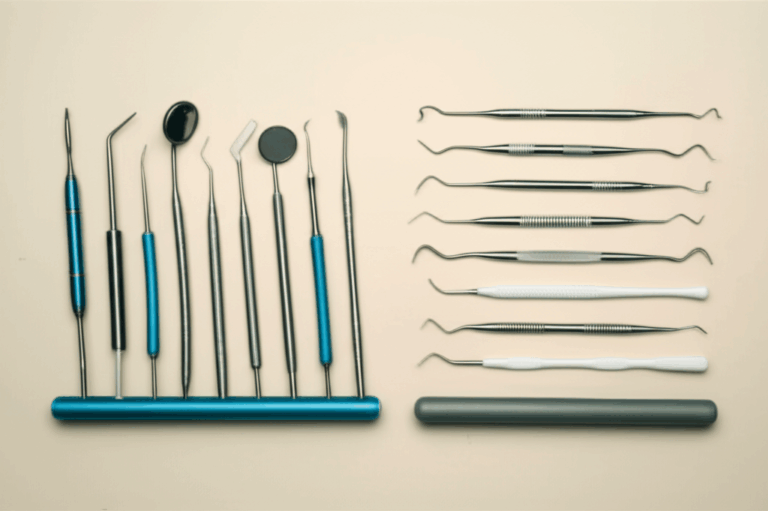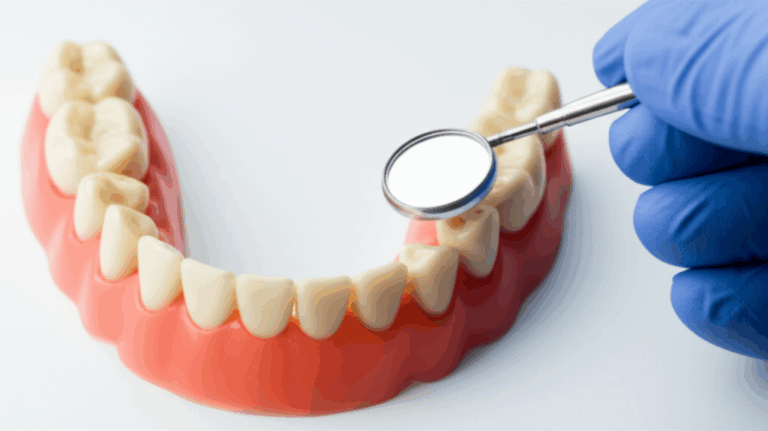
Are Indian Dentists Good? Unpacking Qualifications, Quality, and Patient Experience
That question comes up often—whether you’re thinking about getting dental care while visiting India, moving there, or just searching for a dentist on your holiday. Maybe someone you know had a cheap root canal in Mumbai, or you saw great online reviews from someone who flew to Chennai for new teeth. You want the real facts: Are Indian dentists good? Is it safe? Will you get good dental treatment? Those questions are normal.
Let’s break it all down for you. I’ll explain how Indian dentists are trained, what a visit to the dentist in India is like, how to tell a good clinic from a bad one, and what you can do to make sure you get good dental care—anywhere you are. By the end, you’ll be ready to make the right choice for your teeth.
In This Article
- Common Questions About Indian Dentists
- How Indian Dentists Are Taught: Education and Degrees
- How Indian Dentistry Works: Standards and Safety
- Worldwide View: Are Indian Dentists Respected Around the World?
- Cost and Value: Cheap Doesn’t Mean Bad
- How to Pick a Good Indian Dentist
- Main Points to Remember
- Frequently Asked Questions
Common Questions About Indian Dentists
When you search “are Indian dentists good,” you probably just want to be sure you’ll get safe and honest care. Many people wonder, “Will my treatment in India be the same as in the US, UK, or Australia? Do they use modern tools and methods? How clean is it?” Or maybe you’re an Indian dentist wanting to work outside India and wonder if your degree will be good enough.
Let me tell you—it’s normal to worry, especially with something as personal as dental care. Nobody wants a bad surprise at the dentist! So let’s clear things up.
How Indian Dentists Are Taught: Education and Degrees
What Makes a Dentist Good?
Every skilled dentist starts with good training. In India, that means going to college for a Bachelor of Dental Surgery (BDS)—it’s a tough five-year course with both classrooms and hands-on patient practice. Some go on for a Master of Dental Surgery (MDS) to focus on things like braces or root canals.
Let’s look closer:
- BDS (Bachelor of Dental Surgery):
- 4 years of class learning plus 1 year working with patients
- Subjects: Body science, disease, medicine, treatments, and real practice
- Practice: Students help real people often more than in Western schools
- MDS (Master of Dental Surgery):
- 3 years
- Advanced skills, research, and special jobs (like braces, gum work, or treating kids)
How Does This Compare to Other Countries?
The Dental Council of India (DCI) makes sure schools teach the right things. You can’t get your degree unless you’ve learned enough.
If you want to be a dentist in the US, UK, or other countries, you have to pass their exams. A lot of Indian dentists do just that and work in clinics and universities in many countries.
Hands-On Practice: Learning by Doing
Because there are lots of people in India who need care, dental students see all sorts of problems—simple and difficult—early on. That’s real-world learning you can’t get just from books.
How Indian Dentistry Works: Standards and Safety
Big Cities vs. Small Towns: Different Clinics
India is a big country, and not all dental offices are the same. Big city clinics in places like New Delhi or Bangalore often have new tools—digital X-rays, lasers, and fancy machines. In smaller towns, places may look simpler.
Is It Safe and Clean?
If you worry about old, dirty instruments, don’t—at least not in a proper clinic. The DCI and the National Accreditation Board for Hospitals & Healthcare Providers (NABH) give rules on cleaning, sterilizing, and safety.
What good clinics do:
- Sterilization: All tools are cleaned in special hot machines, put in sealed packs, and many things are used only once
- Safety: Everyone wears gloves and masks, things are covered, and surfaces are wiped clean often
- Certificates: The best places will show off their NABH or ISO awards—these mean they follow strict rules
Modern Technology
Top clinics buy new equipment like digital scanners, 3D X-rays, and use better materials. Sometimes, they work with outside partners, such as a digital dental lab, for faster and better results.
Some smaller or government clinics may use older tools, but most dentists are careful about doing the important steps well. How good the clinic is depends on equipment and how eager the dentist is to learn new things.
Ethics and Professional Behavior
Indian dentists have rules about consent, honesty, and privacy. Most are fair and work hard—but you should always check background, just like anywhere.
Worldwide View: Are Indian Dentists Respected Around the World?
Indian Dentists Around the World
Lots of Indian dentists move abroad and do well. You’ll find them running clinics and teaching in the US, UK, Canada, and Australia.
Why do doubts come up? Because in every country, foreign dentists must pass exams, but Indian dentists often do well with these and go on to succeed.
Licensing Exams Abroad
- USA: Dentists take the National Board Dental Examination and other tests
- UK: They pass the Overseas Registration Exam
- Australia/Canada: Must complete their tests and sometimes extra training
Many Indian-trained dentists make up a big group in Western countries—proof their training in India is strong.
Indian Dentists in Research
Indian dentists also join in research and new product work with partners from around the world. Some even work with labs, such as a dental ceramics lab, for better custom crowns and fillings.
Cost and Value: Cheap Doesn’t Mean Bad
Why Is Dental Care in India Less Expensive?
It’s not because care is bad—it’s because running clinics and living costs are less, and people usually pay directly so there aren’t big insurance knocks. Also, there’s lots of competition.
Look at prices:
- Root canal (India): $100–$300 USD
- Root canal (US): $800–$1,500 USD
Other things like crowns and implants are even cheaper in India. That’s why people come from other countries for treatment.
Does Cheap Mean Bad?
No. You can get first-class care in India. Super low prices in some places, though, might mean they are skipping important steps or aren’t well trained.
Is Dental Tourism Safe in India?
Most people who travel for dental care in India are really happy—with no trouble—if they choose good clinics. Big-name clinics focus on foreign patients, have English-speaking staff, clear prices, and warranties.
Check reviews, make sure the dentist is certified, and choose a clinic with real accreditations for worry-free treatment.
How to Pick a Good Indian Dentist
Want to make the best, safest choice? Here’s what to do:
1. Check Their Qualifications
- Make sure the dentist is on the official list with the Dental Council of India (DCI)
- For special work, see if they have an MDS degree
2. Look at the Clinic
- Is it neat and clean?
- Are the tools new or sealed?
- Are there cleaning and safety steps you can see?
3. Read Reviews
- Look on Google and health websites
- Don’t just judge by one review—see what most people say
4. Communication
- Can you understand the dentist? Do they answer your questions calmly?
5. Accreditation
- NABH or ISO certificates mean high standards
6. Specialist Match
- For big jobs (like implants), find a dentist who did focused study or works with a special implant dental laboratory
7. Red Flags
- Super cheap prices that seem too good
- Won’t show where they studied or talk about cleaning
- Vague or no written treatment plan
Main Points to Remember
Here’s what you need to know:
- Indian dentists get strong training. The BDS and MDS degrees make sure they know both classroom theory and do a lot of hands-on work.
- Big-city clinics in India are modern. The best have equipment, cleanliness, and comfort that are as good as clinics in Western countries.
- Quality isn’t the same everywhere. Go to clinics with real accreditations and check DCI registration.
- Most people are happy with their care. Especially in top clinics, local patients and dental tourists leave with big smiles.
- Price is lower, but quality can be high. Cheaper prices don’t always mean bad work; it’s just because of lower costs and more competition—but always check what you’re getting.
- Indian dentists are respected worldwide. Many have passed exams and now work in the US, UK, and more—they even teach and lead new research.
- Be active in your choices. Ask questions and expect good, clear answers.
Frequently Asked Questions About Indian Dentists
1. Are Indian dental degrees accepted in other countries?
Yes, but you’ll need to pass their local exams to work there. Thousands of Indian dentists already have.
2. Is dental care in India safe?
Yes—mostly at city clinics with good hygiene and real certificates. Make sure the dentist is on the DCI list.
3. Why is Indian dental care so cheap?
Lower clinic costs and lots of patients help keep prices down—even for good care.
4. What’s it like as a patient?
Top clinics have friendly staff, long consultations, and clear treatment explanations. Many patients say their care was great.
5. What about infections?
The best clinics use proper tool cleaning, use throwaway items, and are strict about safety. You can ask for proof.
6. Can you get new treatments like in the US or UK?
Yes. City clinics offer things like digital scans, implants, whitening, and sometimes use products from a zirconia lab.
How to Be Smart With Your Dental Care
Before you choose an Indian dental clinic:
- Think about what you need and how much you want to spend; search for clinics with good reviews and accreditations
- Check that the dentist is registered and the clinic has NABH or ISO certification if possible
- Ask for a written treatment plan with prices before you start
- Visit if you can, or take a video tour to look at cleanliness and new equipment
- Don’t be shy—ask how experienced the dentist is, including with your problem
- Read real patient reviews for comments about honesty and comfort
If you are an Indian dentist hoping to travel:
- Be proud of your training, but study for foreign exams carefully
- Show off your big clinical experience—Western employers like it
For everyone:
- Dental health is important for your whole body
- Taking care of your teeth early saves you trouble later, anywhere in the world
Who Should Think About Dental Care in India?
Almost anyone! Whether you need a cleaning, fillings, root canal, crowns, cosmetic whitening, braces, or care for kids or older adults, there are skilled dentists and good clinics ready to help.
- Best for: Fillings, cleanings, root canals, implants, veneers, braces, even treatment for kids or older people
- Visitors/Tourists: You can save a lot, but do your research and aim for clinics with experience helping international people
- Locals/Expats: Especially in big cities, there are lots of reliable clinics
Final Advice: Smile and Be Confident
Indian dentists work hard and want to earn your trust. The main thing is to choose carefully, speak up about your needs, and learn as much as you can. Ask questions, expect clear answers, and don’t let anyone rush you. Your smile matters!
If you want to learn more about fancy dental work, you can see what a high-quality emax dental lab can do for better fit and looks, or check out how a professional dental lab makes strong retainers.
Here’s to a healthy, happy, more confident you—whether in India or anywhere else.
Don’t let where you are—or any worries—stop you from getting great dental care. With the right information and smart choices, you can have safe, honest, and skilled care no matter where in the world you go.







